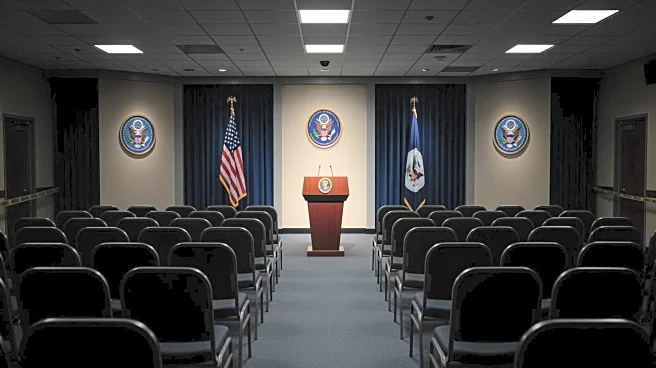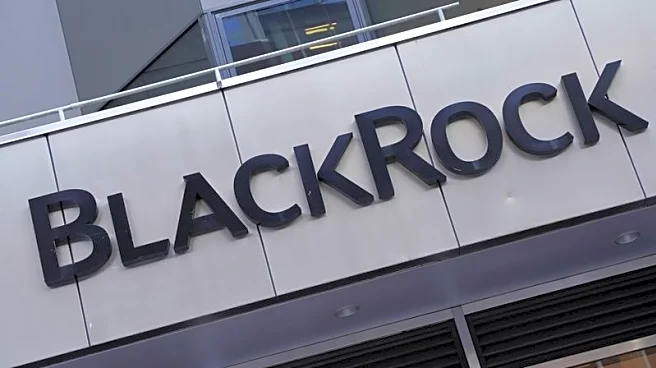What's Happening?
The Pentagon has introduced a new policy under Defense Secretary Pete Hegseth that significantly restricts press access, prompting journalists to turn in their press passes. This move has been criticized
by press freedom advocates who argue that it criminalizes routine reporting. As a result, major news outlets are refusing to comply with the policy, opting instead to cover the Pentagon from outside its premises. The policy has been described as an unprecedented attack on the First Amendment, with only one media outlet, One America News, agreeing to the new terms. The change has led to concerns among military officers and journalists about the impact on public understanding of military operations.
Why It's Important?
The restriction of press access at the Pentagon has significant implications for transparency and accountability in military operations. By limiting journalists' ability to report from within the Pentagon, the policy could hinder public access to information about how the military is funded and managed. This move may affect the public's ability to scrutinize decisions involving substantial taxpayer money. The policy also raises concerns about the erosion of press freedom and the potential for increased government control over information dissemination. The refusal of major news outlets to comply with the policy underscores the tension between media organizations and government efforts to control narratives.
What's Next?
Journalists and media organizations are expected to continue covering Pentagon activities from outside its walls, potentially leading to increased reliance on alternative sources and methods for obtaining information. The ongoing refusal to comply with the policy may prompt further negotiations or legal challenges. Additionally, the policy could lead to broader discussions about press freedom and government transparency, with potential involvement from civil society groups advocating for the protection of journalistic rights. The situation may also influence future policies regarding media access to government institutions.
Beyond the Headlines
The Pentagon's restrictive press policy highlights broader ethical and legal concerns about government control over information. It raises questions about the balance between national security and the public's right to know, as well as the role of the media in holding government accountable. The policy may contribute to a growing divide between military and civilian perspectives, potentially affecting public trust in government institutions. Long-term implications could include shifts in how media organizations approach coverage of government activities and the development of new strategies to circumvent access restrictions.










